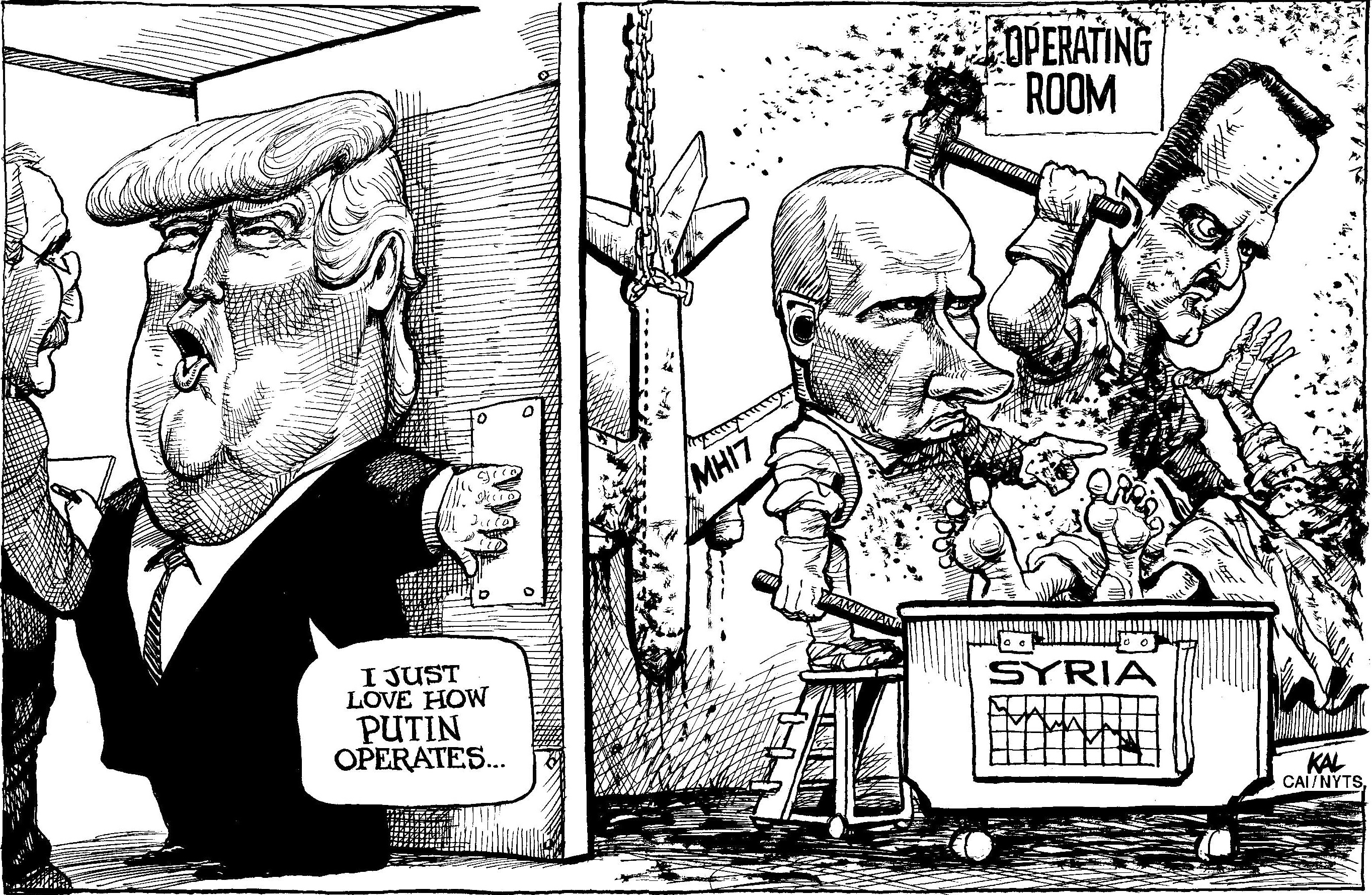Vladimir Putin has made an art of turning weakness into strength. As Russian and Syrian forces pound Aleppo in the biggest assault of Syria's five-year civil war, the Russian president clearly has emerged as a dominant force in the Middle East. Two years ago Russia had virtually no presence in the region, aside from a naval base in Syria. Today Moscow's fighter jets and missiles fly over Syrian, Iranian and Iraqi airspace.
Over the last year, Putin has inserted Russia into the Syrian conflict and shored up the regime of President Bashar Assad as it was on the verge of collapse. The Russian leader has forged a quasi-military alliance with Iran that has allowed him to project power in the Persian Gulf — something that has evaded Moscow since the end of World War II.
If that wasn't enough, Putin's relationship with Turkey, which seemed to be on a collision course after Ankara downed a Russian fighter jet last year, has now warmed to the point where Putin and Turkish President Recep Tayyip Erdogan are about to restore full diplomatic relations. All the while Putin has maintained a close and productive relationship with Israeli Prime Minister Benjamin Netanyahu.

















With your current subscription plan you can comment on stories. However, before writing your first comment, please create a display name in the Profile section of your subscriber account page.